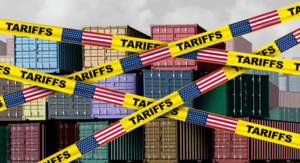
Turkey Economic Reform: A determined Committed To Implementing
Turkey Economic Reform has embarked on a significant journey, marked by a surprising return to orthodox economic policies eight months ago. Turkish officials, led by Finance Minister Mehmet Şimşek, are steadfast in their commitment to reform, evident in the Central Bank of the Republic of Turkey’s (CBRT) substantial interest rate hikes and the government’s fiscal tightening measures.
Despite initial skepticism, both fiscal and monetary authorities emphasize President Recep Tayyip Erdoğan’s support for these efforts, aiming to reassure stakeholders. While challenges persist, including stubbornly high inflation, the nation is witnessing positive signs of normalization, with reduced risk premiums and improved reserves. The recent leadership transition within the CBRT underscores the ongoing commitment to this reform trajectory.
Table of Contents
Turkey Economic Reform
Turkey, a transcontinental Eurasian nation, is undergoing substantial economic reforms aimed at bolstering competitiveness, attracting foreign investment, and fostering sustainable growth. These reforms, executed through policy adjustments and structural changes, target macroeconomic imbalances while enhancing the business environment and promoting innovation.
Turkey economic reform is a central focus, reflecting the country’s proactive approach to modernizing its economy and positioning itself as an attractive destination for investors. By addressing key challenges and embracing reform, Turkey seeks to create a more resilient and dynamic economic aspect, capable of navigating global uncertainties and driving long-term prosperity.
This article explores how Turkey is reforming its economy, highlighting key initiatives and their impact.
1. Fiscal Discipline and Public Finance Management
Turkey has diligently pursued fiscal discipline to stabilize its economy and mitigate public debt. Through various measures, such as bolstering revenue collection, streamlining expenditure, and refining public finance management, the government has made notable strides.
The implementation of Turkey economic reform has contributed significantly to these efforts. By 2023, Turkey’s budget deficit had diminished to 3.6% of GDP from 4.6% in 2022, showcasing advancements in fiscal consolidation.
Additionally, initiatives aimed at enhancing transparency and accountability in public spending have played a pivotal role in revitalizing investor trust. These concerted efforts underscore Turkey’s commitment to financial prudence and lay a foundation for sustainable economic growth.
2. Monetary Policy and Inflation Targeting
The Central Bank of the Republic of Turkey (CBRT) has pivoted towards a proactive stance on monetary policy, prioritizing price stability and inflation targeting. Employing interest rate adjustments and liquidity management, the CBRT endeavors to rein in inflationary forces and uphold macroeconomic equilibrium.
As of December 2023, Turkey’s annual inflation rate reached 36.1%, underscoring the efficacy of the CBRT’s policy interventions in dampening price escalation. This strategic shift underscores the CBRT’s commitment to navigating economic challenges, aiming to foster sustainable growth and stability within the Turkish economy despite persistent inflationary pressures.
Furthermore, the ongoing Turkey economic reform complements these efforts, reinforcing the CBRT’s commitment to fostering long-term economic stability and growth.
3. Structural Reforms to Enhance Competitiveness
Turkey is actively pursuing structural reforms aimed at boosting competitiveness and productivity across multiple sectors, spanning labor markets, education, infrastructure, and technology. Efforts to enhance vocational training and skill development seek to elevate workforce quality and stimulate innovation-led progress.
The country is also prioritizing investments in digital infrastructure and technology adoption to facilitate its shift towards a knowledge-driven economy. Simultaneously, the ongoing Turkey economic reform initiatives are further shaping its economic perspective and positioning itself favorably in the global marketplace, leveraging advancements in technology and human capital development to drive sustainable growth and prosperity.
4. Strengthening the Financial Sector
Efforts to overhaul Turkey’s financial sector and implement Turkey economic reform are pivotal for fostering stability and spurring economic expansion. The government’s strategy entails bolstering regulatory scrutiny, fortifying banking supervision, and fostering financial inclusivity.
Measures like bank recapitalization and the adoption of risk-centered oversight frameworks have fortified the financial system’s resilience. Consequently, Turkey’s banking industry retains strength, boasting a robust capital adequacy ratio of 17.8% and a non-performing loans ratio of 4.2% as of 2023.
These initiatives not only enhance the sector’s stability but also underpin its capacity to support sustainable growth, instilling confidence in investors and paving the way for a more prosperous economic aspect.
5. Promoting Foreign Direct Investment (FDI) and Trade
Turkey is vigorously pursuing foreign direct investment and bolstering international trade as a cornerstone of its economic overhaul, including its ongoing Turkey economic reform. By liberalizing investment regulations, simplifying bureaucratic processes, and enhancing the business environment for overseas investors, the government aims to attract capital.
In 2023, Turkey successfully drew in $13.2 billion in FDI, signaling increasing investor trust in its economic trajectory. Moreover, initiatives to broaden export horizons and fortify trade alliances have propelled Turkey’s assimilation into the global economic scenery, fostering greater connectivity and competitiveness on the international stage.
6. Infrastructure Development and Urban Renewal
Turkey’s economic transformation hinges on strategic investments in infrastructure, urban renewal, and Turkey economic reform. Ambitious projects spearheaded by the government encompass modernizing transportation networks, bolstering energy infrastructure, and upgrading urban facilities.
Through endeavors like constructing highways, airports, and high-speed rail links, the nation aims to bolster connectivity, bolster trade, and catalyze economic growth nationwide. Concurrently, urban renewal initiatives endeavor to elevate livability standards, allure investment, and foster sustainable urban expansion.
These multifaceted efforts not only address immediate needs but also lay the groundwork for long-term prosperity and resilience, positioning Turkey as a competitive player in the global economic view.
7. Sustainable Development and Environmental Protection
Turkey prioritizes sustainable development and environmental protection within its economic reforms, acknowledging their significance. Government initiatives endorse renewable energy promotion, greenhouse gas emission reduction, and environmental risk mitigation, including the ongoing efforts of the Turkey economic reform.
Investments in clean energy infrastructure, energy efficiency, and waste management bolster Turkey’s shift towards a greener economy. Moreover, the integration of sustainable development goals into national development plans underscores a commitment to achieving equilibrium between economic advancement, social equity, and environmental conservation.
This multifaceted approach demonstrates Turkey’s proactive stance in addressing environmental challenges while fostering long-term prosperity and resilience.
Bottom Line
Turkey’s continuous economic reforms, including the ongoing Turkey economic reform, signal a multifaceted approach aimed at bolstering competitiveness, stimulating innovation, and attaining sustainable growth.
Employing strategies such as fiscal prudence, fine-tuning monetary policies, implementing structural reforms, and channeling investments into pivotal sectors, Turkey is steadfast in fortifying its status as a vibrant emerging market.
Despite lingering challenges like geopolitical instabilities and external susceptibilities, Turkey’s unwavering dedication to reform and its inherent resilience underscore its enduring economic promise on the international stage.





